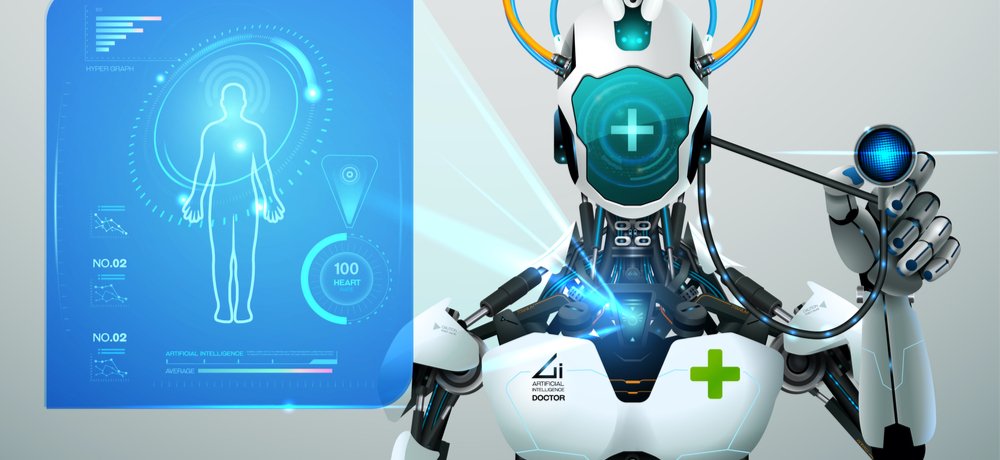
Professors David Jayne, professor of surgery and Alejandro Frangi, Royal Academy of Engineering chair in emerging Technologies at the University of Leeds set out the key concepts contributing to the future of surgery, or ‘Surgery 4.0’.
Surgery 4.0 is the future of the surgical speciality. It’s a continuum, no longer beginning and ending at the tip of the scalpel but encompassing the entire patient journey from diagnosis to recovery and beyond. The surgical procedure itself is just one aspect of an entire digital pathway. Almost everyone is familiar with the concept of robotic surgery, whether that’s from personal experience or an interest in sci-fi, but robotics is also only one aspect of Surgery 4.0, which also incorporates other concepts such as novel diagnostics, personalised interventions, computer modelling and virtual reality. Surgery 4.0 has the potential to bring improvements to patient safety and outcomes, enhance clinician training and offer new ways of evaluating novel technologies.
In industry, we have already seen the benefits of the digital transformation (Industry 4.0), which has revolutionised the way the medical products are manufactured and supplied. These same processes are now slowly being integrated into healthcare. One example is Element who have expertise, for instance, in large-scale testing networks of distributed turbines. Using intelligent sensors and artificial intelligence, they can detect when these turbines reach the end-of-life stage, anticipate potential failures, and put mitigation policies in place. These sensors can precisely measure at what point the turbines need to be replaced for safety reasons – preventing wasteful disposal of those still working well. But this has implications for surgery too. As improvements in surgery have resulted in patients living longer, happy lives after implants, it has become increasingly important to know that these implants remain safe and functional. Assuming we could monitor patients’ implants through on-implant sensors, Element could use similar technology to detect when the safety of those medical implants might be compromised.
Surgery 4.0 is seeing the clinical community and regulators looking for ways to move away from the traditional bench, in vitro, in vivo, and Randomised Control Trials (RCTs) as the only sources of scientific evidence on the safety and efficacy of medical products. Surgery 4.0 will use in silico, i.e. virtual or computational, trials to inform innovation and certification of surgical procedures and devices. Conventional trials can be resource-intensive, slow, and ultimately only probe these technologies in constrained scenarios or limited populations.
The fourth dimension is computational. Improvements in access to patient data alongside advances in computer modelling will allow researchers soon to predict the best interventions for each individual. When the same techniques are applied to complete virtual populations, in silico trials can be used prior to gold standard RCTs on human trials to detect early failures or offer an ethical way to evaluate new treatments in rare diseases or paediatric populations. In silico trials also have the potential to represent the target population more accurately, as traditional studies tend to underrepresent certain groups due to inclusion or exclusion biases or limited access to patients.
Imagine a case where a cerebral aneurysm patient can not only be fitted with a life-saving stent, but stent bespoke to their specifications and needs. This is close to being a reality thanks to in silico analysis of blood flow models to customise the perfect stent for any patient. A bespoke stent would be easier to fit as well as resulting in improved outcomes for the patient. Additionally, cutting-edge virtual reality operating theatres could allow the surgeon to hone their skills and practice the procedure on a simulation of the patient. Or surgeons-in-training could perform virtual surgeries to complete their training programmes.
Experts across the UK are working on a variety of ground-breaking advances in the surgical field and contributing to the shift to surgery 4.0. The Centre for HealthTech Innovation is a joint research initiative between the University of Leeds and Leeds Teaching Hospitals NHS Trust to accelerate the development of exciting technologies to address some of society’s biggest healthcare problems. The National Institute for Health Research (NIHR) is also making strides in the area of predictive medicine, with the NIHR Sheffield Biomedical Research Centre having an In silico (Predictive) Medicine theme.
Surgery 4.0 will revolutionise the whole patient journey. The UK will continue to build capacity and capability in this area to work with forward-thinking surgical research companies and academics. The NIHR is a great place to start if you want to build a multi-disciplinary team that will work collaboratively to ensure you generate the evidence you need to support the adoption of your medical device, digital technology, or diagnostic in the NHS.
